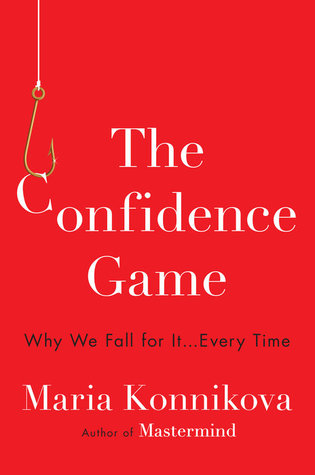More on this book
Community
Kindle Notes & Highlights
Read between
July 25 - July 30, 2019
The simple truth is that most people aren’t out to get you. We are so bad at spotting deception because it’s better for us to be more trusting. Trust, and not adeptness at spotting deception, is the more evolutionarily beneficial path.
Alessandra Souza liked this
Often, patient, levelheaded people will go a bit crazy in the wake of a major life change—we become more impulsive, less stable, riskier versions of ourselves. And our impulsivity and appetite for risk are some of the only reliable indicators of fraud susceptibility. In one study, risk takers were over six times more likely to fall victim than those whose risk tolerance was low. Given the right circumstances, just about anyone can fit that description. When we’re feeling low, we want to get out of the slump. So, schemes or propositions that would look absurd in another light suddenly seem more
...more
Victims may also be more prone to belief, broadly speaking. One study of con victims found that two factors seemed to play a major role in which emotionally susceptible people, in particular, fell prey to an unscrupulous actor: they were more optimistic and more religious. In other words, they believed things could get better, and they believed that greater forces could play a role in that improvement.
Accuracy, it turns out, was overrated. Those who were better at reading threatening cues also felt worse about their partners and marriages by the end of the study. The less accurate actually came out ahead—as did their relationship satisfaction. We never learn to be expert people-readers because that expertise can backfire spectacularly. Why form accurate judgments when the inaccurate ones make our lives far more pleasant and easy?


